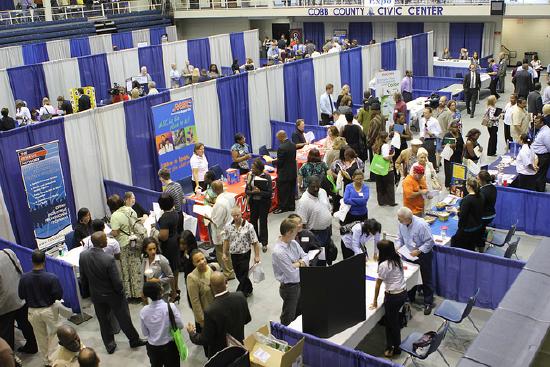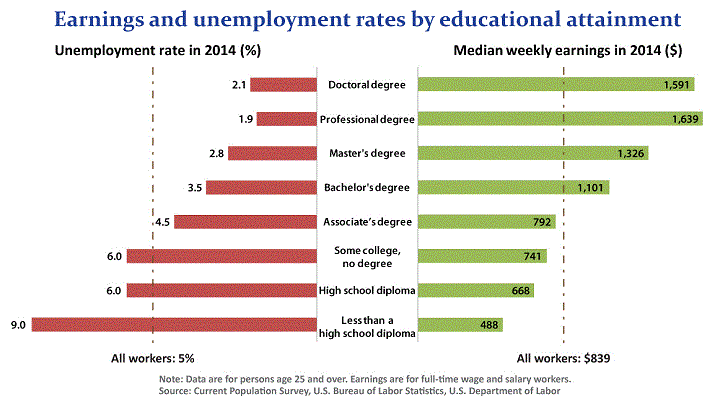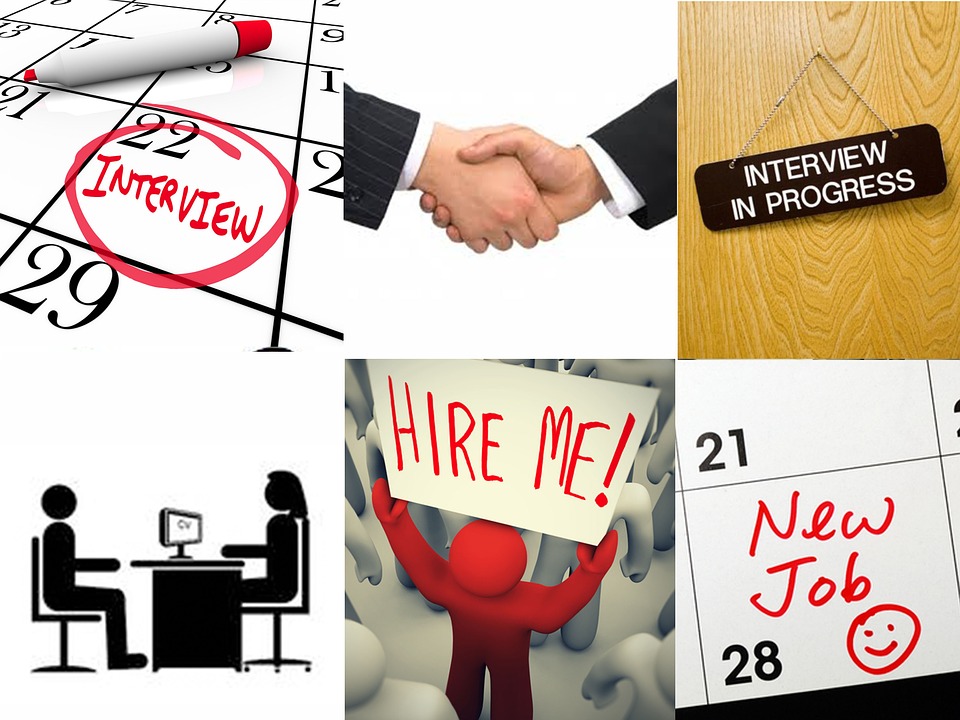2.1: Review Your Career Profile
- Last updated
- Save as PDF
- Page ID
- 108111
Learning Objectives
By the end of this section, you will be able to:
- Identify your motivations for attending college as it relates to your future career goals
- Review your individual career profile
- Explore activities to gain knowledge and experience about your future career
College and Career
Knowing what you truly want to gain from your college experience is the first step toward achieving it. But reaching your goals doesn’t necessarily mean you are college and career ready.
Ultimately, college and career readiness demands students know more than just content, but demonstrate that they know how to learn and build upon that content to solve problems. They must develop versatile communication skills, work collaboratively and work competitively in a school or work environment. Ensuring that you possess both the academic and technical know-how necessary for a career beyond the classroom is a great step toward succeeding on whatever path you choose. —Washington, DC Office of the State Superintendent of Education

Stay focused, go after your dreams, and keep moving toward your goals. —L L Cool J, musician
What does it mean to be ready for college and a career? In general, you are a college- and career-ready student if you have gained the necessary knowledge, skills, and professional behaviors to achieve at least one of the following:
- Earn a certificate or degree in college
- Participate in career training
- Enter the workplace and succeed
For instance, if you are studying for a skilled trade license in college, or perhaps pursuing a bachelor of arts degree, you are college-ready if you have the reading, writing, mathematics, social, and thinking skills to qualify for and succeed in the academic program of your choice.
Similarly, you are a career-ready student if you have the necessary knowledge and technical skills needed to be employed in your desired field. For example, if you are a community college student ready to be a nurse, you possess the knowledge and skill needed to secure an entry-level nursing position, and you also possess required licensing.
For a long time, my plan had always been to be a kindergarten teacher. But when I began my undergraduate degree I fell into that ever-growing pool of college students who changed their major three times before graduation. I was swayed by family members, my peers, and the economy, but I eventually realized that I was investing my education in the wrong areas for the wrong reasons. It shouldn’t just be about salaries and job security. I needed to find that personal attachment.
At eighteen, it’s hard to see your entire life spread out before you. College may feel like a free-for-all at times, but the reality is that it’s one of the most defining times of our lives. It should never be squandered. I started to imagine my life beyond college—what I found important and the type of lifestyle I wanted in the end. I started thinking about the classes that I was actually interested in—the ones that I looked forward to each week and arrived early to just so I could get a seat up front.
A turning point for me was when I took the advice of a campus mentor and enrolled in a career exploration course. I learned more about myself in that class than I had in my entire three years at college prior to taking it. It showed me that my passion was something I had always thought about but never thought about as a career. . . . Through this realization and my participation in my career exploration class, I saw a viable future in the Higher Education Administration field.
—Jamie Edwards, Foundations of Academic Success: Words of Wisdom
The Marriage of College and Career
The oldest institution of higher learning in the United States is widely acknowledged to be Harvard University. It was established in 1636 with the aim of providing instruction in arts and sciences to qualify students for employment. In the 1779 Constitution of Massachusetts submitted by Samuel Adams, John Adams, and James Bowdoin to the full Massachusetts Convention, the following language was used:
Is “public employment” preparation still the goal of higher education institutions today? Indeed, it is certainly one of the many goals! College is also an opportunity for students to grow personally and intellectually. In fact, in a 2011 Pew Research Center survey, Americans were split on their perceptions of the main purpose of a college education:
- 47 percent of those surveyed said the purpose of college is to teach work-related skills.
- 39 percent said it is to help a student grow personally and intellectually.
- 12 percent said the time spent at college should be dedicated to both pursuits—teaching work-related skills and helping students grow personally and intellectually.
These statistics are understandable in light of the great reach and scope of higher education institutions. Today, there are some 5,300 colleges and universities in the United States, offering every manner of education and training to students.
What do employers think about the value of a college education? What skills do employers seek in their workforce? In 2014, Hart Research Associates conducted a survey on behalf of the Association of American Colleges and Universities. The survey revealed that the majority of employers believe that having field-specific knowledge as well as a broad range of knowledge and skills is important for recent college graduates to achieve long-term career success.
Employers also said that when they hire, they place the greatest value on skills and knowledge that cut across all majors. The learning outcomes they rate as most important include written and oral communication skills, teamwork skills, ethical decision-making, critical thinking, and the ability to apply knowledge in real-world settings.[1]
Employment Rates and Salaries
Consider, too, the following statistics on employment rates and salaries for college graduates. College does make a big difference!
- The average college graduate earns about 75 percent more than a non-college graduate over a typical, forty-year working lifetime. (U.S. Census Bureau)[2]
- In 2014, young adults ages 20 to 24 with a bachelor’s degree or higher had a higher employment rate (88.1 percent) than young adults with just some college (75.0 percent). (NCES)
- The employment rate for young adults with just some college (63.7 percent) was higher than the rate for those who had completed high school. (NCES)
- The employment rate for those who completed high school (46.6 percent) was higher than the employment rate for young adults who had not finished high school. (NCES)
- Employment rates were generally higher for males than females at each level of educational attainment in 2014. (NCES)[3]
- Over the course of a forty-year working life, the typical college graduate earns an estimated $550,000 more than the typical high school graduate. (PEW)
- The median gap in annual earnings between a high school and college graduate as reported by the U.S. Census Bureau in 2010 is $19,550. (PEW)[4]
Perhaps most important, an overwhelming majority of college graduates—86 percent—say that college has been a good investment for them personally. (PEW)

Differences in Earnings between States
You may wish to use this Earnings and Educational Attainment (2011) interactive table to see how earnings for college graduates vs. high school–only graduates in your state compare with those in other states.
All in all, college imparts a wide and deep range of benefits. The short video Why College, below, shows that with a college degree you are more likely to
- Have a higher salary
- Have and keep a job
- Get a pension plan
- Be satisfied with your job
- Feel your job is important
- Have health insurance
Vidro: There are many benefits to getting a college degree - here are just a few. https://youtu.be/-N6nru0nThg
Success in College
Success in college can be measured in many ways: through your own sense of what is important to you; through your family’s sense of what is important to your collective group; through your institution’s standards of excellence; through the standards established by your state and country; through your employer’s perceptions about what is needed in the workplace; and in many respects through your own unfolding goals, dreams, and ambitions.
How are you striving to achieve your goals? And how will you measure your success along the way?
Career Profile
As you make a commitment to your college career, let’s review your career profile, a self-assessment of your goals, values, personality, skills and interests in order to start researching specific careers and explore activities to give you more hands-on experience.
Activity 5.1: Your Career Profile
Goals
- Reflecting on your career exploration, identify one long-term career goal.
- Then, identify 2-3 short-term goals for this semester to achieve your long-term goal from #1.
Values
- From Chapter 3, what are your top 3-5 work values?
- Name 2 career titles that you are most interested in that will allow you to express your values.
Interests
- From Chapter 4 and your SII inventory results, what are your top interests (Holland Code)?
- Name 2 career titles that you are most interested in that will allow you to express your interests.
Personality
- From Chapter 4 and your MBTI results, what is your 4-letter personality type?
- Name 2 career titles that you are most interested in that will be best fit with your personality type.
Skills
- From Chapter 4, what are your 5 skills?
- Name 2 career titles that you are most interested in that will allow you to utilize your skills.
Research activity:
- Of all the career titles you have explored, which career would you be interested in researching more in-depth?
Below is the second part of Jamie Edwards’s essay (former student at State University of New York). Her advice is to make connections between the “now” of college experience and future career possibilities. She thinks that the more informed you are about your career options through real-life conversations and experiences, the better prepared you will be for your future—and the more confident you will be in your career decisions.
From where I sit now—my former personal and professional struggles in tow—I offer up some pieces of advice that were crucial to getting me where I am today. Whether you’re an undecided major who is looking for guidance or a student with a clearly defined career path, I suggest the following:
- Find a mentor—For me, everything began there. Without my mentor, I wouldn’t have done any of the other items I’m about to suggest. Finding the right mentor is crucial. Look for someone who can complement your personality (typically someone who’s the opposite of you). My advice would be to look beyond your direct supervisor for mentorship. It’s important to create an open forum with your mentor, because there may be a conflict of interest as you discuss work issues and other job opportunities. Potential mentors to consider are an instructor on campus, your academic advisor, a professional currently working in your prospective field, someone you admire in your community, or anyone in your network of friends or family that you feel comfortable discussing your future goals with.
- Enroll in a Career Exploration/Planning course, or something similar—Even if you do not see the effects of this course immediately (such as dramatically changing your major), you will notice the impact down the road. Making educated career choices and learning job readiness skills will always pay off in the end. Through my career exploration class, I learned how to relate my personality and values to potential career fields. These self-assessments changed my entire thought process, and I see that influence daily. Beyond changing the way you think, the knowledge you gain about effective job search strategies is invaluable. Learning how to write purposeful résumés and cover letters, finding the right approach to the interview process, and recognizing your strengths and weaknesses are just a few of the benefits you can gain from these type of courses.
- Complete a Job Shadow and/or Informational Interview—No amount of online research is going to give you the same experience as seeing a job at the front line. In a job shadow or an informational interview, you’re able to explore options with no commitment and see how your in-class experience can carry over to a real world setting. Additionally, you’re expanding your professional network by having that personal involvement. You never know how the connections you make might benefit you in the future. My only regret about job shadowing in college is that I didn’t do it sooner.
- Do an Internship—A main source of frustration for recent grads is the inability to secure an entry-level position without experience. “How do I get a job to gain experience when I can’t get a job without experience?” This is how: do an internship or two! Most colleges even have a course where you can obtain credit for doing it! Not only will you earn credits towards graduation, but you’ll gain the necessary experience to put on your résumé and discuss in future interviews. Having completed four internships throughout my college career, I can’t say they were all great. However, I don’t regret a single one. The first one showed me the type of field I didn’t want to work in. The second confirmed that I was heading in the right direction with my career. My third and fourth internships introduced me to completely different areas of higher education which broadened my knowledge and narrowed my search simultaneously.
My takeaway is that sometimes you have to learn what you don’t want in order to find out what you do want. The more informed you are about career options through real-life conversations and experiences, the better prepared you will be for your future and the more confident you will be in your career decisions. Always explore your options because even if you learn you hate it, at least you’re one step close to finding what you love.
—Jamie Edwards, Foundations of Academic Success: Words of Wisdom
Activity 5.2: Informational Interview
As recommended in Part 2, #3 above, try the following activity from California Career Café, a virtual career center for CA community college students:
Activity 5.3: resources for career research
After you have identified career titles you are most interested and have conducted informational interviews, check out the following resources to help research careers more in-depth:
- California Labor Market Information
- The Labor Market Information Division (LMID) is the official source for California Labor Market Information. The LMID promotes California’s economic health by providing information to help people understand California’s economy and make informed labor market choices. We collect, analyze, and publish statistical data and reports on California’s labor force, industries, occupations, employment projections, wages and other important labor market and economic data.
- Occupational Outlook Handbook from US Department of Labor
- The OOH can help you find career information on duties, education and training, pay, and outlook for hundreds of occupations.
- Additionally, for in-person help, go to the college’s career center to get more help with your search
Key Takeaways
Labor research indicates that as educational attainment increases in individuals the unemployment rate decreases.
A college degree affects other personal factors you may have not considered such as retirement plan, health care insurance, and higher lifetime salary.
Selecting the right career involves thorough research such as, informational interviews, online research, and utilizing the Career Center located in your college.
- "Falling Short? College Learning and Career Success." Hart Research Associates, 20 Jan. 2015. Web. 31 Mar. 2016. ↵
- "Workplace, Office Blogs, Articles & Advice - Experience.com." Workplace, Office Blogs, Articles & Advice - Experience.com. Web. 31 Mar. 2016. ↵
- "Fast Facts." Fast Facts. Web. 31 Mar. 2016. ↵
- "Is College Worth It?" Pew Research Centers Social Demographic Trends Project RSS. 2011. Web. 31 Mar. 2016. ↵
Contributors and Attributions
- The Big Picture. Authored by: Linda Bruce. Provided by: Lumen Learning. License: CC BY: Attribution
- Image of job fair. Authored by: Public Information Office. Located at: https://flic.kr/p/ardWgX. License: CC BY: Attribution
- Foundations of Academic Success: Words of Wisdom. Authored by: Thomas C. Priester, editor. Provided by: Open SUNY Textbooks. Located at: http://textbooks.opensuny.org/foundations-of-academic-success/. License: CC BY-NC-SA: Attribution-NonCommercial-ShareAlike
- Student Voices: What Does it Mean to be College and Career Ready?. Authored by: Achieve. Located at: https://youtu.be/9pYqsShxqD4. License: CC BY: Attribution
- First University in the United States. Provided by: Wikipedia. Located at: https://en.Wikipedia.org/wiki/First_university_in_the_United_States. License: CC BY-SA: Attribution-ShareAlike
- Why College?. Authored by: OregonGEARUP. Located at: https://youtu.be/-N6nru0nThg. License: All Rights Reserved. License Terms: Standard YouTube License
- CA Labor Market Info. Located at: http://www.labormarketinfo.edd.ca.gov/. License: All Rights Reserved
- What Does College and Career Readiness Mean?. Provided by: Office of the State Superintendent of Education. Located at: http://osse.dc.gov/service/what-does-college-and-career-readiness-mean. License: Public Domain: No Known Copyright
- Chart of Earnings and Unemployment. Provided by: Bureau of Labor Statistics. Located at: http://www.bls.gov/emp/ep_chart_001.htm. License: Public Domain: No Known Copyright
- Interview. Provided by: Pixabay. Located at: https://pixabay.com/en/interview-job-skills-employment-607713/. License: Public Domain: No Known Copyright
- Provided by: California Career Cafe. Located at: http://www.cacareercafe.com/experience/conversations/. License: Public Domain: No Known Copyright
- Provided by: Bureau of Labor Statistics . Located at: https://www.bls.gov/ooh/. License: Public Domain: No Known Copyright


